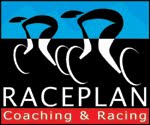One more semi-related thing and this is certainly not a commercial email. A few of you have emailed me about fitness testing.
Last year about this time we organized fitness testing through our lab partner, The FitStop Human Performance Lab, also a sponsor of the Del Mar Crit Series.
If you're coming off your competitive season, you might consider getting tested to gauge fitness progression with the beginning and mid-season testing, as well as serving as a marker for the future (i.e. gauging your future post season test results to gauge your progress) and lay the roadmap for your winter training.
Whether you test with The FitStop or any other labs in the area (such as the Chek Institute), this is a good idea to do now (any time before Thanksgiving!). You'll use these numbers to plan your winter training and test again about 6-8 weeks before competition. Then use those numbers to fine-tune your program for competition and so on.
If you're interested in testing, feel free to contact Ken Nicodemus at The FitStop and tell him you're a Kam/Raceplan referral to get the below pricing discounts. Ken can be reached via email: kjnico@adelphia.net or phone: (760) 634-5169
If you've tested with the FitStop before, these are the prices but don't quote me on them. Check with Ken for accuracy:
- LT/VO2: $100
- Metabolic testing without LT/VO2: $100 This test still calculates your levels without the need to take blood and measure LT (or OBLA to be more exact). It's also shorter, taking just about 20min instead of 40+ with LT.
- Dunk/Fat test: $50
- Oxygen Economy Test: valuable for endurance athletes to measure the economy at which you fuel your body and what things you might do differently to improve this. This of it as cleaning out your turbo. Check with Ken for pricing.
- Cardio-Metabolic Profile: a nice to know to figure out how efficient you are at using oxygen and fuel. Basically how your engine runs. Check with Ken for pricing.
- Peak Power Testing: similar to a power profile that you can get from about 3 months worth of power data or a specific field test. Check with Ken for pricing.
- Spin Economy (using Spin Scan): for the geeky of all cyclist/triathletes to see how truly screwed up your pedal stroke is! Check with Ken for pricing.
If this is your first time testing, you still get a discount:
- LT/VO2 testing: Regular $220, Raceplan special is $150
- Dunk test: $50 additional
- Check with Ken for pricing on all other tests
========================
I came across this short article in a coaching rag and think it's relevant to a lot of us, especially this time of year as we're coming off competition, hopefully taking some time off and planning for the next season.
Performance Conditioning (the rag I got this article from) has long advocated that the difference between an individual participating in a sport for fitness versus that same individual participating in a sport for competition is coaching.Chances are you're not as gifted genetically as a high level athlete. Some coaches claim that genetics account for up to 90 percent of predicting athletic success. Good genes come with natural athletic abilities that allow for advanced athletic skills and the ability to take on larger training volumes and recover from hard workouts faster. In addition, time is a major factor. An athlete will train up to six hours a day [while] the recreational fitness advocate puts in 30 quality minutes three to four times a week.Finally, the high level athlete has a vast amount of support resources: team physicians, athletic trainers, strength and conditioning coaches, sport psychologist and nutritionists all are available to the high level athlete on a continuous basis.But there are some important similarities that you enjoy with the high level athlete. The first is your love of sport you do as a fitness activity. This is an important motivational factor. The next is the principles of how the body works and develops are the same and the mechanism for injury and its limitations to performance have the same outcome. You both have goals you wish to achieve based on your abilities. This makes planning very similar. You may think that an athlete faces little or no distractions and adversities. This is not true. They are just different. Life's challenges are the same, the difference is how they are handled.Something to think about.
| ||||||||||||||
| ||||||||||||||
====================================
Link to me at LinkedIn: http://www.linkedin.com/in/kzardouzian
====================================
Del Mar Criterium Series
====================================
Team Beat Cancer
====================================
--
No virus found in this outgoing message.
Checked by AVG Free Edition.
Version: 7.1.408 / Virus Database: 268.13.3/474 - Release Date: 10/13/2006



